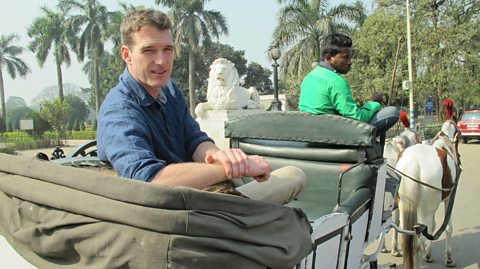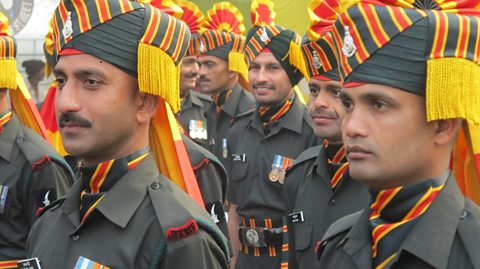Video summary
Dan Snow describes how the position of the East India Company came under threat from forces at home and in India, resulting in India eventually being given to Queen Victoria.
In England, people began to call for India to be 'civilised'.
William Wilberforce was best known for his successful campaign to abolish the slave trade and his desire to 'save the souls of India'.
He pressured the government to force the East India Company to allow missionaries to enter India, which they did in 1813.
This sent a message to the Indian people that the British government had sanctioned an assault on their culture and religions.
The same act also removed the Company’s trade monopoly (in an era of Free Trade), so the Company’s main duty was to administer its territories on behalf of the British crown.
Tolerance and willingness to learn about Indian culture disappeared and the gap between British and Indians grew.
In the new era of Victorianism, the British viewed India as barbaric.
Due to Babington Macaulay’s Education Act in 1835 English became taught in schools instead of native languages.
This led to fear and suspicion amongst Indians.
Furthermore, the Company began to lose control of the Sepoy army as relationships between Britons and Indians disintegrated.
Finally, this led to mutiny and a War of Independence, resulting in the dissolution of the Company.
Teacher Notes
Pupils could use this short film to tackle an enquiry into why the East India Company was disbanded in 1858.
They could be asked to look at its relations with the British government, its changing role in India, its attitudes to Indian culture, and the significance of the Indian Mutiny.
This short film will be relevant for teaching KS3 history in England, Wales and Northern Ireland and Third / Fourth level in Scotland.
History KS3: Customs and Culture. video
A short film which describes how the British embraced Indian culture both through changes in fashions and culture.

History KS3: From Greed to Famine. video
The riches accrued from the Company’s success gave men such as Clive enormous influence in Parliament and society. However, events in India meant that it wouldn’t last.

History KS3: From Merchants to Rulers. video
After the crash, the British government took over the Company, expanded its territories and built an empire.

History KS3: The Rise of a Trading Colossus. video
A short film which describes the development of the East India Company, which grew from a trading enterprise to possess the powers of a small state.

History KS3: The Seven Years War. video
A short film explaining how the East India Company overcame opposition from the French to gain control of India.

Ěý